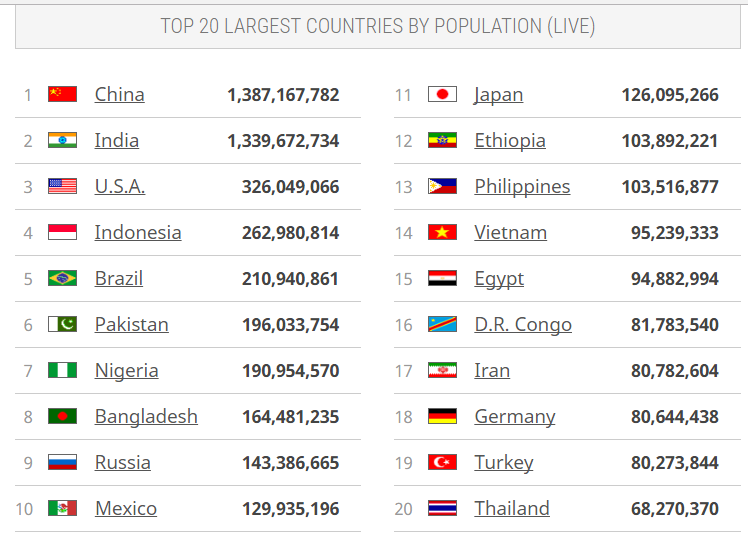As of yesterday, you are one of 7.5 billion living human beings living on this planet.
That’s according to Worldometers, an independent company world statistics-counting website run by developers, researchers, and volunteers.
Worldometers has a live counter which tracks births, deaths, population growth and other key stats about the growth of our planet.
At the time of typing this exact sentence, the world’s population stood at 7 500 418 824. By the time you’re reading this, it will have probably ballooned way beyond that because, according to Worldometers, the global population grew by over 237 000 just today.
Asia is the most populated continent at over four billion, followed by Africa at over one billion.
Four months into the 2017 and the total growth is more than 44.5 million (births), while over 18 million deaths have been recorded. Meaning the ratio of births is nearly three times that of deaths.
Earth clocked seven billion human beings in 2011 and is projected to reach a population eight billion in 2023 and 10 billion by 2056.
The first time humans were recorded at one billion was reportedly back in 1804 (this number is however based on historical estimates considering that censuses weren’t common across many regions in the country, including Africa).
The top 20 most populated countries
China remains the most populated country in the world at 1 387 167 783 (at the time of writing this). Nigeria is the most populated country in Africa, with 190 million people living there, followed by Ethiopia with a population of 103 million.

South Africa is the 25th most populated country with 55 436 360 of us here.
Growth rate slowing down
Much as we’re edging closer towards an overpopulated planet, we should probably consider ourselves that the growth rate is actually slowing down instead of speeding up.
In 1951, the growth rate was at 1.85%, this year it’s 1.11%. The 60’s saw the highest growth rate at 2.1%, hence the era is referred to as the Baby Boom era.
[Source – Worldometers. Image – DFID – UK Department for International Development]

